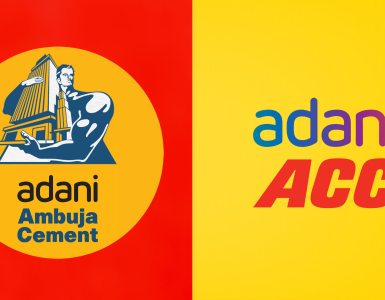The year 2016 will go down in the history of India Inc for the record number of fire sales as companies struggled with stressed balance sheet and banks burdened with bad loans. For years in the past, companies across all spectrum — from real estate to rubber, from software to salt and from communications to power — had expanded their operations by investing heavily. Companies got funding from banks at cheaper rates, private investors pumped in money in the business and foreign investors, too, bought their greenbacks. In many cases, companies ended up biting more than they could chew, which led to debt in balance sheets and wide scale default.
However, with the slowdown in the economy, many companies could not keep their revenue stream going and instead started selling their non-core assets. The situation got complicated as various government policies changed and there were a lot of activism over environmental issues by non-governmental organisations. Moreover, banks are aggressively putting pressure on companies to repay their outstanding loans and are no longer doing any kind of restructuring. Even pressure is building from Reserve Bank of India on Indian public sector banks to recognise bad loans with an aim to clean up bank balance sheets by March 2017. In fact, a report by Credit Suisse points out that the total borrowings of top 10 indebted groups stood at Rs 7.5 trillion.
[rml_read_more]
Highest asset sales
Data from Thomson Reuters show that Indian companies have sold more assets in 2016 than they have in any year since liberalisation. During the year, asset sales which were either completed or are in the pipeline were over $40 billion, which is much higher than the earlier record of $28 billion in 2007. The asset sales were driven mainly because of distress and debt of companies. It is also because of the change in government policies and political will not to compromise, even if it relates big and influential corporate group. The top deals of the year are sale of controlling stake in Essar Oil to PJSC Rosneft Oil Company and Ultra Tech Cement’s acquisition of Jaypee Group’s cement assets.
The debt overhang of companies started from mid-2000 when Indian companies started investing and acquired a lot of businesses. The credit boom, which finally led to the global financial crisis in 2008, saw slowdown in business activities and dilution of lending norms by banks and other lending institutions. The crisis brought an end to many acquisitions and companies were finding out ways to sale off businesses which were not core to their primary line of operations.
Fire sales: some deals done
Though a lot of companies went in for asset sales, here are some of the prominent ones that took place.
Tata Group:
During the tenure of Cyrus Mistry, the company went on asset sales across the world in its various group companies. The decision to let go off the UK steel assets was made after over two years of understanding issues on the ground and trying to find a solution with the management. Tata Chemicals shut down its soda ash and calcium chloride plant in Winnington in the UK and Tata Communications also sold 74% stake in its data centre business to Singapore Technologies Telemedia for $635 million to cut borrowings and consolidate operations. The Tata group also sold stakes in two of its biggest firms TCS and Tata Teleservices. It raised $200 million from the sale of shares in TCS and another $2.7 billion from the sale of a 26% stake in mobile operator Tata Teleservices to Japan’s NTT DoCoMo.
Essar Group:
The announcement of the sale of Essar Group’s entire holding in Essar Oil and Vadinar port to Rosneft, Trifugra and UCP will release Rs 450 billion of cash for Essar Group. The money received can be used to repay debt of Rs 235 billion in Essar Global Holdings and reduce debt in financially stressed entities such as Essar Steel and Essar Power.
Jaypee Group:
The north India-based Jaypee group has a debt of over Rs 75,000 crore, which forced the company to go for asset sales. Jaiprakash Power Ventures sold two of its hydro plants of 1391 MW capacities for Rs 9,200 crore to JSW Energy in September 2015. Jaiprakash Power Ventures is now left with three thermal power plants and one hydropower plant, which are also reeling under pressure led by fuel supply constraints and weak demand. The group has agreed to sell its 20mtpa of cement assets to Kumar Birla-led Ultratech for Rs 15,900 crore. This will leave its listed entities with about 6mtpa of cement capacity, three thermal power plants, one hydropower plant, an expressway project and land parcels.
ADAG group:
The Anil Ambani’s group is neck-deep in debt and some of the group’s firms like Reliance Infrastructure and Reliance Defence don’t earn enough to service the interest outgo. The company had put on block about telecommunications towers valued at Rs 22,000 crore and fibre optic related infrastructure of Rs 8,000 crore from Reliance Communications. Reliance Infrastructure sold 49 per cent stake in its electricity generation, transmission and distribution business in Mumbai and adjoining areas to Canadian pension fund Public Sector Pension Investment Board (PSP Investments). In phases, Reliance Capital has sold stakes in its mutual fund and life insurance businesses to Nippon Life Insurance for Rs 3,461 crore to allow the latter to increase its stake to 49 per cent in each of the businesses. It further plans to raise another Rs 4,000 crore by the end of 2016-17 by selling non-core assets, including proprietary investment book and by inducting a partner in its general insurance business.
GMR Group:
The power to construction major has sold 30% stake in its energy arm to Malaysian energy firm Tenaga Nasional Berhad for Rs 2,000 crore. In March 2016, the company sold 51% stake in its 99-km highway project in Karnataka to its joint venture partners in Rs 1,078 crore deal. The group is planning to raise about Rs 5,000 crore by selling land parcels, energy assets and stake in airport subsidiary. The company also announced that it was selling part of a road project in Karnataka to help reduce debt by more than Rs 1,000 crore. It also plans to sell 30 per cent of its stake in its airport arm, which is valued about Rs 10,000 crore.
GVK Group
The group divested its 33 per cent stake in Bangalore International Airport to Fairfax India Holdings Corp for an aggregate investment of Rs 2,149 crore. It is bringing in equity investors into Hancock Infrastructure Pvt Ltd, its holding company for its rail and port projects in Australia.
Steel and Power sectors: Problems galore
At last count, between steel and power plants there were over 50 units small and big up for sale. The steel sector remains a big problem for Indian banks given large debt and inadequate EBITDA in the case of most steel companies. However, the imposition of anti-dumping duty on a range of steel products will improve the profitability of steel companies in the country. A partial resolution of Essar Steel’s debt/NPL following a successful completion of the Essar Oil transaction will result in some reduction in troubled loans to the steel sector. Banks also have talking about change in management in two steel companies for some time – Essar Steel and Bhushan Steel both have debt of over Rs 40,000 crore.
In power sector, Naveen Jindal-led Jindal Steel and Power Limited is selling its 1,000 MW power plant to his elder brother Sajjan Jindal at an enterprise value of Rs 6500 crore and is looking to sell other power assets to reduce the company’s debt.
Dealing with bad assets
With banks racing against time to clean up their debt-laden balance sheets by March 2017, they are trying all means to make companies repay the loans. Apart, from forcing promoters to sell their companies, banks are also insisting promoters to increase their equity stake in those companies where there are chances of revival. While large corporate resisted sale of non-core assets on the pretext that they can extract more value once the economy starts recovering, banks are not willing to give them another chance.
The spate of fire sales by companies is likely to continue in 2017 as many companies with stressed balance sheets may find it difficult to raise fresh funds. The government’s demonetization drive would also have some impact on the top-line and bottom line of stressed companies. So promoters with cash reserve looking to expand their business can look at some of stressed assets across sectors and acquire them at a very reasonable valuation. Such acquisitions will help once the domestic and global economy starts recovering.




